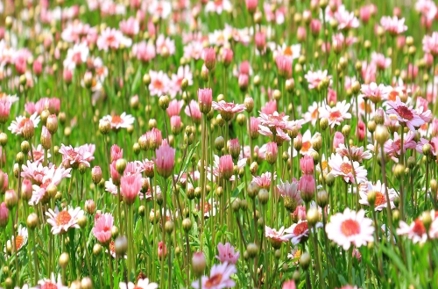Kislev Shemitah Update

🌱 Work in the garden
The shemitah year is here and the prohibitions of working the land already apply in full.
As the days get shorter and the temperature drops, plants need less water. If you water manually, take this into account and water your plants less. If you have an automatic watering system in your garden, it's a good idea to reduce the amount of water and space out watering times to avoid overwatering your plants and harming them.
Grass also grows slower during this time, so you can mow the lawn less often. Even so, throughout the entire shemitah year, don't let your grass grow too tall and keep it trimmed close to the ground.
☑️ Start preparing now to prevent Spring weeds. Spray herbicides before heavy rainfall.
🍎 Fruit
Only fruit that began to grow during the shemitah year has kedushat shevi'it. Most fruits in the marketplace began growing before the shemitah year, so they do not have kedushat shevi'it.
Exceptions: pitaya, kobo, and dragon fruit in supermarkets began growing during shemitah. Make sure you buy these fruits in stores with shemitah kashrut certification. (Passionfruit will join this list later on this month; many [who treat it like a vegetable] maintain that it has kedushat shevi'it already).
🥕Vegetables
Any vegetable that was harvested during shemitah has kedushat shevi'it. This is true for any vegetable or herb/tea leaves picked in our gardens as well as the many vegetables in the markets. Now it is very important to make sure to buy vegetables and herbs only with a kashrut certification, and it is recommended to consume produce with kedushat shevi'it.
At this time of the year, we are concerned that most vegetables were planted after the beginning of shemitah, and they may be prohibited to eat due to the sefichin prohibition (if purchased in a place without kashrut certification). Exceptions include root and hard vegetables: sweet potato, onion, carrot, butternut squash, pumpkin, horseradish, beets, celeriac (celery root), parsley root, and arum.
Important: as opposed to what was posted on the shemitah calendars at the beginning of the year, hot peppers may be sefichin starting in Kislev, while fennel may be sefichin already last month.
🌹 Flowers
A significant portion of flowers sold in the marketplace was planted during the shemitah year. For this reason, it is important to buy them only from vendors who have kashrut certification or heter mechirah. There are types of flowers where this is less of a concern, and there is room to be lenient and buy them even from places without certification.
To the best of our knowledge, the following vendors have kashrut certification:
💐 Otzar Ha'aretz - flowers are sold Thursday/Friday at Otzar Ha'aretz stores
💐 Zer4U - under the supervision of Lev HaSharon Rabbinate, heter mechirah
💐 Teva Vaferach flower store - under the supervision of Rabbi Efrati
Note that there are flower vendors who do not have kashrut certification who present heter mechirah certificates that they received from flower growers. This does not guarantee that the flowers at the booth were actually purchased from these growers.
🔗 Important links
☑️ Shemitah calendars for fruit, vegetables, grains, and herbs
https://en.toraland.org.il/beit-midrash/articles/shemitah/shemitah-calendars/
☑️ Join Shemitah Updates
https://www.toraland.org.il/linker/wa-english/
☑️ The Consumer's Guide to Shemitah online, shemitah-related articles, lectures, and charts




